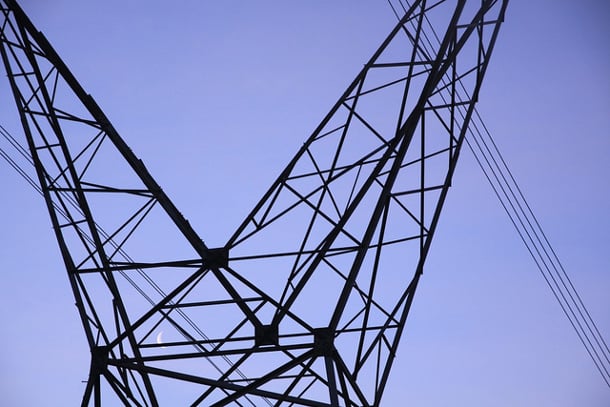A former senior British Columbia civil servant says the provincial government has manipulated BC Hydro's finances for political gain.
In a June 10 presentation to a B.C. Utilities Commission panel in Victoria, Richard McCandless called on the regulator to publicly probe the Crown corporation's finances.
"It is time to re-establish the commission's credibility in representing the public interest, and to provide a voice for future generations," he told the panel, saying there have been no public hearings on BC Hydro's finances and related policy questions for eight years.
McCandless worked in the B.C. government for 35 years, many of them in positions with administrative and financial planning responsibilities, the last 11 as an assistant deputy minister. His roles included managing court services and access to information.
He has written a report, "Rate Suppression and Debt Transformation: The Political Use of BC Hydro 2008 to 2014," that is scheduled for publication in the fall 2016 issue of BC Studies, he told the panel.
'Thin ice' accounting
After the 2008 financial crisis and the economic recession, the provincial government made returning to a balanced budget its top priority and money from Crown corporations helped achieve that goal, he said. It used BC Hydro to balance the government's budget, promote private investment in power generation and subsidize industry by suppressing rates, McCandless said.
It was able to do that largely through the "abuse" of regulatory accounts that allowed it to defer expenses for years into the future, he said.
Former auditor general John Doyle criticized BC Hydro's use of the accounts in a 2011 report.
In 2014 the government took the practice to a new level with the introduction of a "rate smoothing regulatory account" that allows BC Hydro to record in the current year revenue it expects to collect in future years, McCandless said.
The "accelerated revenue" appears not to conform with accepted accounting principles, he said, and noted that NDP critic for BC Hydro, Adrian Dix, has sought the opinion of Auditor General Carol Bellringer on the practice.
"They're on very thin ice, and hopefully the auditor general will break the ice and force a retreat," McCandless said in an interview. He said he hopes Bellringer will look into the practice and thinks it is likely that she would find the utility is inappropriately booking revenue that it may or may not later collect.
Taxpayers borrowing from ratepayers
Since 2010, BC Hydro has in total added about $3.1 billion to its deferral accounts, McCandless told the panel. "In the same period, the government recorded approximately $2.9 billion in BC Hydro net income, [which includes] $1.2 billion in cash dividend transfers to help lower the government's direct operating debt."
Put another way, the government claims in its budget revenue from BC Hydro, part of its narrow surplus, but that money is largely borrowed, he said in an interview. The government is saving taxpayers' debt and improving how its books look, but is instead loading it onto BC Hydro ratepayers, he said.
"If you stand back, it's not that intricate to see what they're doing," he said.
While other regulated utilities use deferral accounts, it's not to the same level as BC Hydro, he said. For Hydro Quebec, for example, the deferral balance is about 18.6 per cent of equity. The comparable figure at BC Hydro is 116 per cent, he said. "In other words, without the deferrals BC Hydro would be insolvent."
Financial rating company Moody's has expressed concern about the weak finances at BC Hydro in its recent reports on the provincial government's finances, he said.
Hydro and ICBC, 'ticking time bombs'
McCandless said that in 2012 the government took control of rate setting away from the BCUC, concerned that the independent body wouldn't make decisions conforming to the government's priorities.
"The fundamental question boils down to who represents the public interest?" he said. "From my research, this government has manipulated the financial details of our public power utility to meet its balanced budget objectives, and to set lower than necessary rates during election years... for political advantage."
The BCUC can help the public become better informed about BC Hydro's weak finances, including by reviewing the utility's use of deferral accounts, he said.
A call to the BCUC Tuesday afternoon was not returned by publication time.
A spokesperson for Bill Bennett's energy and mines ministry recently told The Tyee that BC Hydro's use of regulatory accounts is open, transparent and in line with International Accounting Standards.
"BC Hydro's approach to recovering regulatory accounts provides the appropriate balance between achieving equity for current and future ratepayers while keeping electricity rates at a reasonable level," he said in an email.
McCandless previously wrote a report critical of the government's management of insurer ICBC, which BC Studies published in 2013.
The government has mismanaged both ICBC and BC Hydro's finances, McCandless told The Tyee. "These are two ticking bombs that whoever becomes government are going to have to deal with." ![]()
Read more: BC Politics

















Tyee Commenting Guidelines
Comments that violate guidelines risk being deleted, and violations may result in a temporary or permanent user ban. Maintain the spirit of good conversation to stay in the discussion.
*Please note The Tyee is not a forum for spreading misinformation about COVID-19, denying its existence or minimizing its risk to public health.
Do:
Do not: